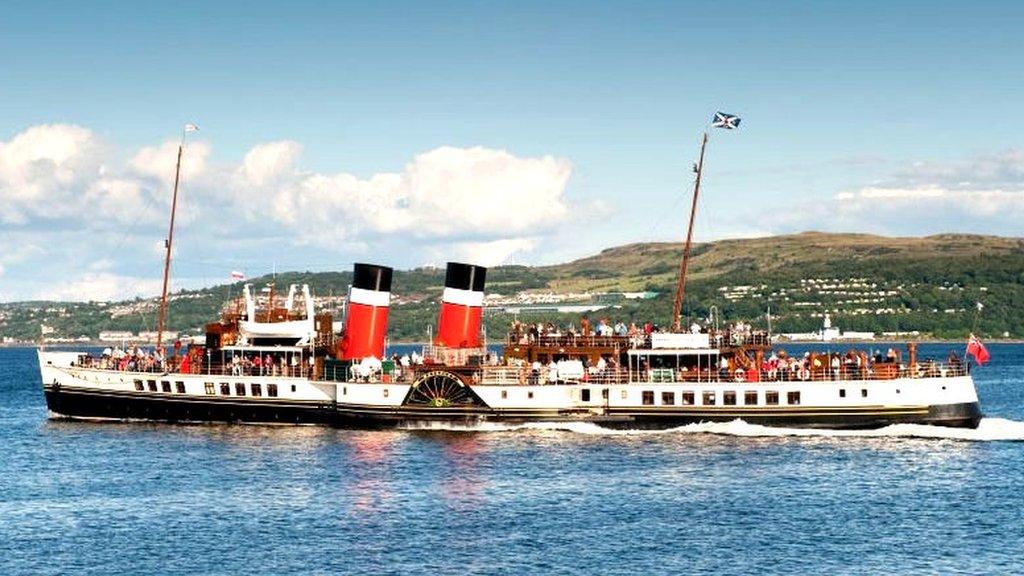Waverley paddle steamer finally sets sail after two years
- Published
She's back - the iconic vessel set sail with a cruise on the Clyde
The 70-year-old Waverley paddle steamer has set sail for the first time in two years.
The historic ship resumed service with a cruise on the Clyde following urgent boiler repairs.
However, there is a significant reduction in passenger numbers and safety measures have been put in place.
The ship had been due to sail on Friday but was cancelled at the last minute due to an "unexpected technical and administration issue".
Some disappointed passengers were allowed on board to see the refurbishment before returning home.
The ship, described as the world's last seagoing paddle steamer, missed the 2019 season as it waited for urgent repairs.
A funding appeal was launched in June 2019 and it hit its target in December after receiving a received a £1m grant from the Scottish government to help with the restoration.
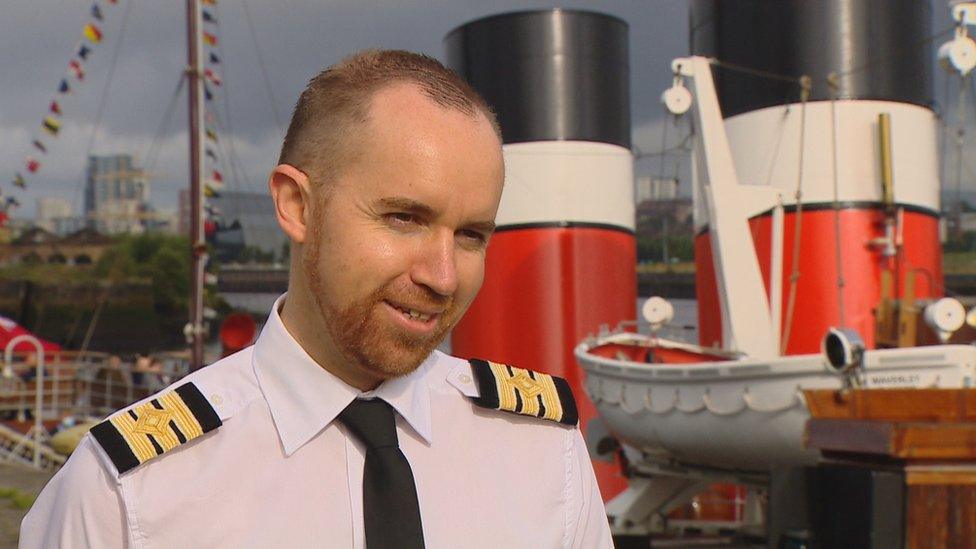
Paul Semple said the ship has had a "major transplant"
Paul Semple, general manager of Waverley Excursions, said: "This is a day that we've longed for, considering how far we've come with Waverley - but she's back.
"People have shown support through the appeal and just seeing people on board today, happy that Waverley is back in business.
"It was like open-heart surgery. She's had a major transplant in the sense that the boilers have been replaced, the electrical systems have been replaced and all the super-structure put back on top - the famous funnels reinstated again. Technically, we have a new Waverley."
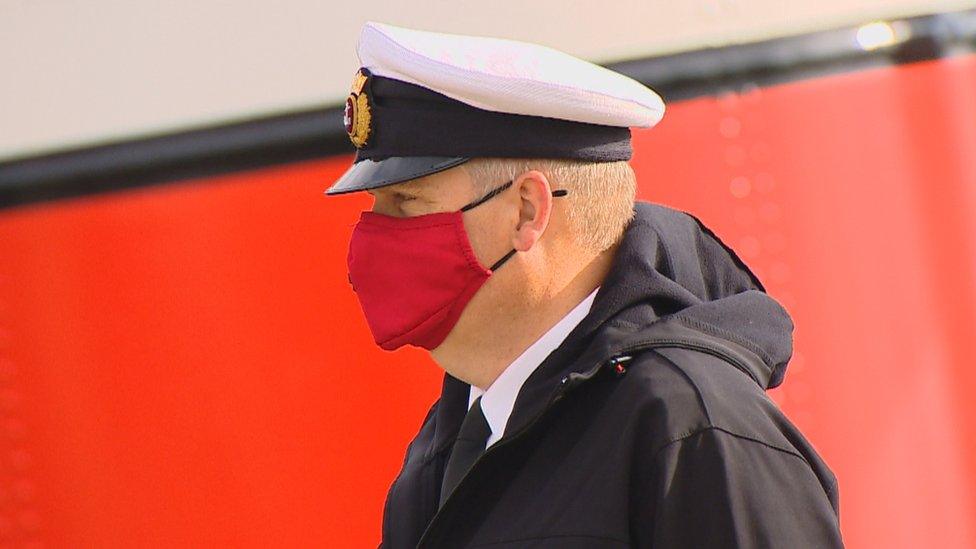
Masks have to be worn on board the steamer
Due to Covid-19 restrictions there are now fewer passengers and face masks must be worn. Hand sanitiser has also been provided.
Mr Semple said that, with the Covid-19 pandemic happening after the ship was out of action for repairs, he thought "I didn't know if we would get to this day".
"To be back on the water is just fantastic," he said. "The people that have supported Waverley should be proud that they've helped us get to this point."
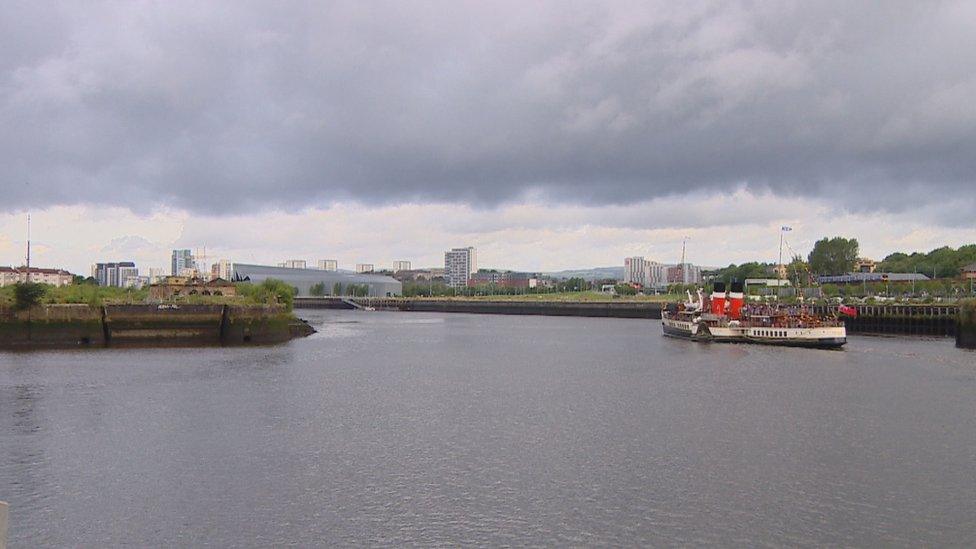
The Waverley set sail for the first time in two years
One passenger said: "It's been a long haul and a long wait. So much hard work by so many people, we're pleased it's finally coming together today."
Named after Sir Walter Scott's debut novel, The Waverley was built just after World War Two as a replacement for a vessel sunk during the Dunkirk evacuation.
In 1975, at the end of its working life, it was bought for £1 by the Paddle Steamer Preservation Society.
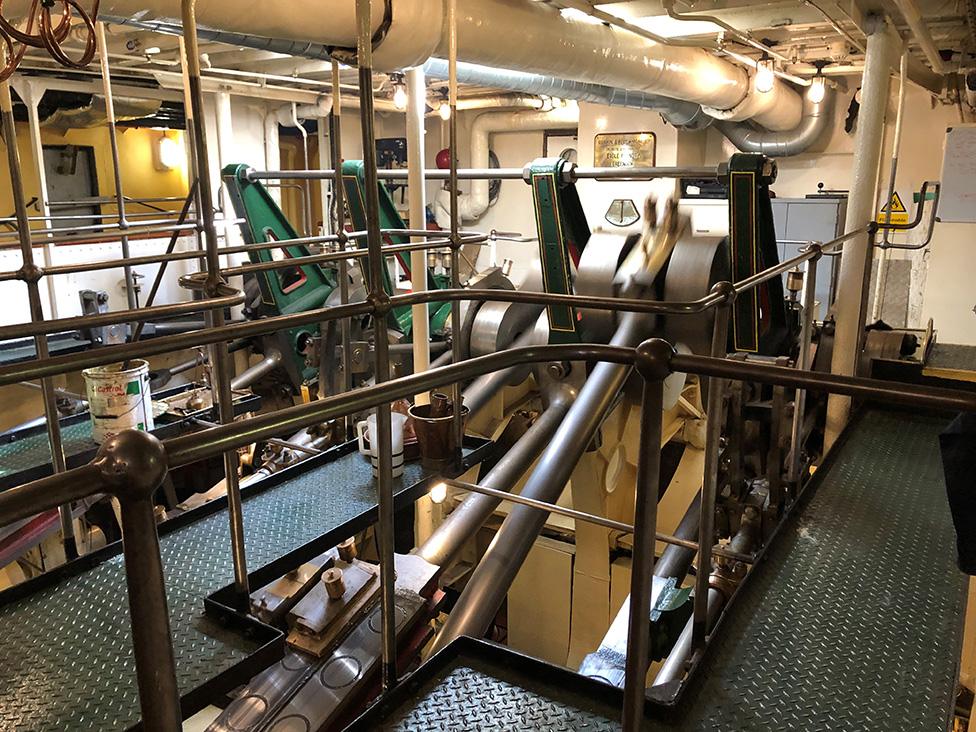
Repairs were carried out to the ship's engine
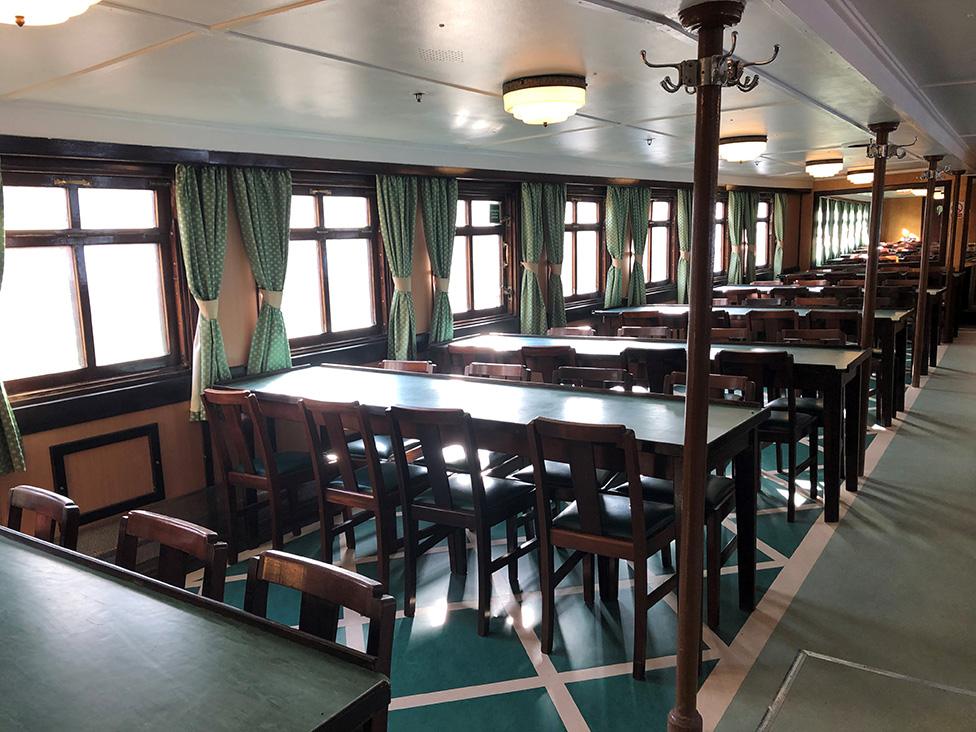
More than £2m was raised for the refurbishment
For generations of Scots it has been a familiar sight, offering trips along the west coast, carrying 130,000 passengers a year.
During the refit, the twin boilers were replaced, three new alternators were installed and new electrics were fitted.
The passenger toilets and dining saloon were also refurbished.
The Waverley - facts and figures
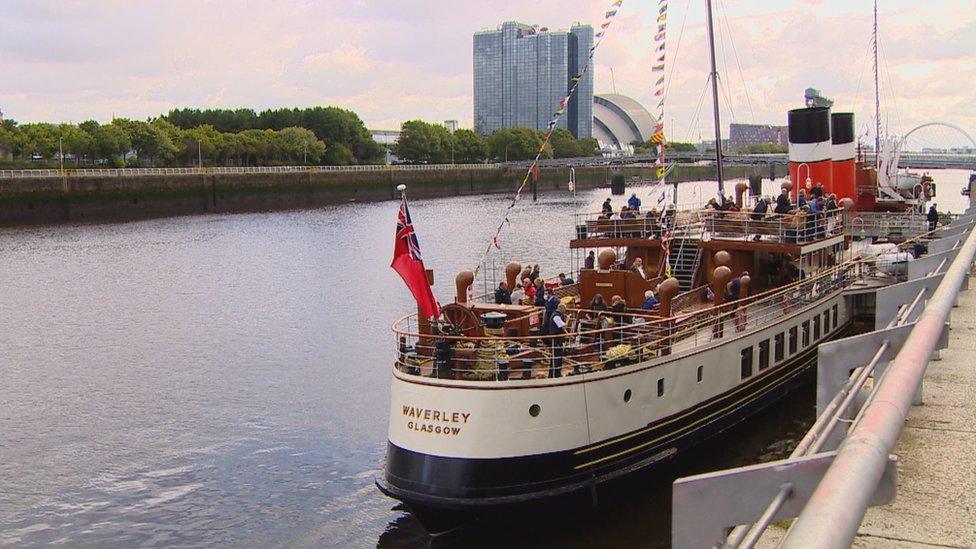
Built by A. & J. Inglis of Glasgow and launched in October 1946.
Entered service with the London and North Eastern Railway in June 1947, working LNER's Firth of Clyde steamer route from Craigendoran Pier, near Helensburgh, to Arrochar.
Powered by a three-crank diagonal triple-expansion marine steam engine built by Rankin & Blackmore in Greenock.
Now painted in original LNER 1947 livery of red, white and black funnels, traditional brown-grained (or "scumbled") superstructure and black paddle-wheel boxes.
July 1977 - badly damaged when she struck rocks near Dunoon. The heavier than normal post-war construction which made provision for possible future military use as a minesweeper may have helped her stay together while she was refloated.
June 2009 - struck the breakwater at Dunoon with 700 passengers on board, 12 of whom suffered minor injuries.
Since being sold to the Paddle Steamer Preservation Society, the steamer has carried more than five million passengers.
- Published21 August 2020
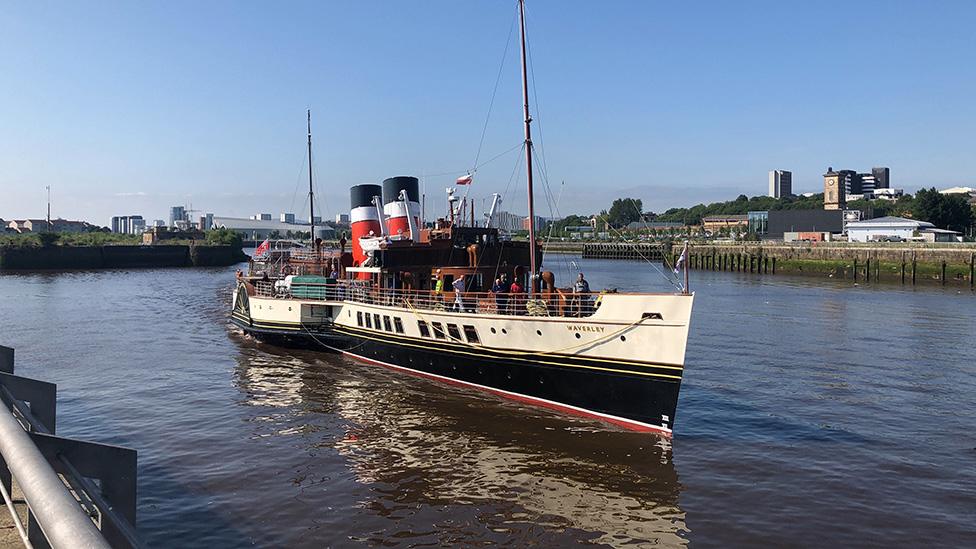
- Published15 June 2019
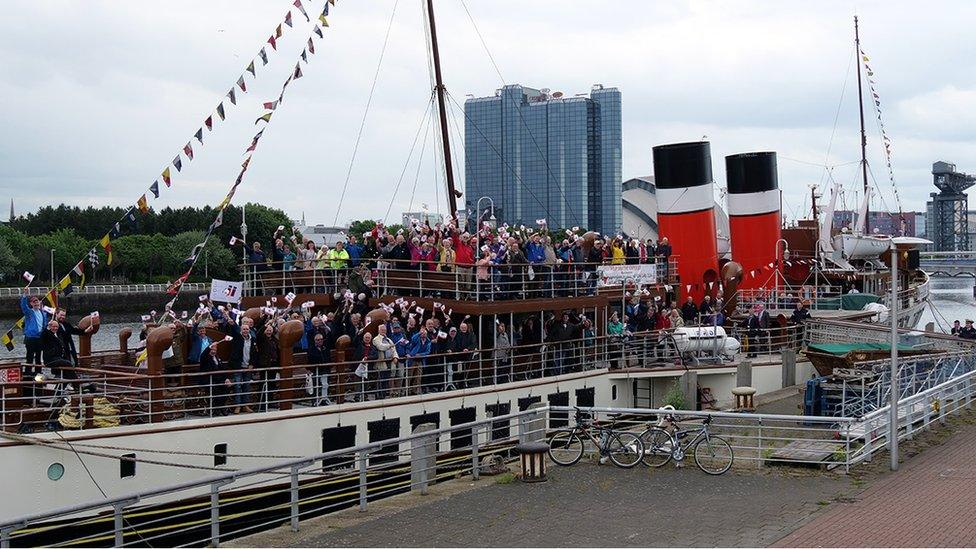
- Published10 May 2019
